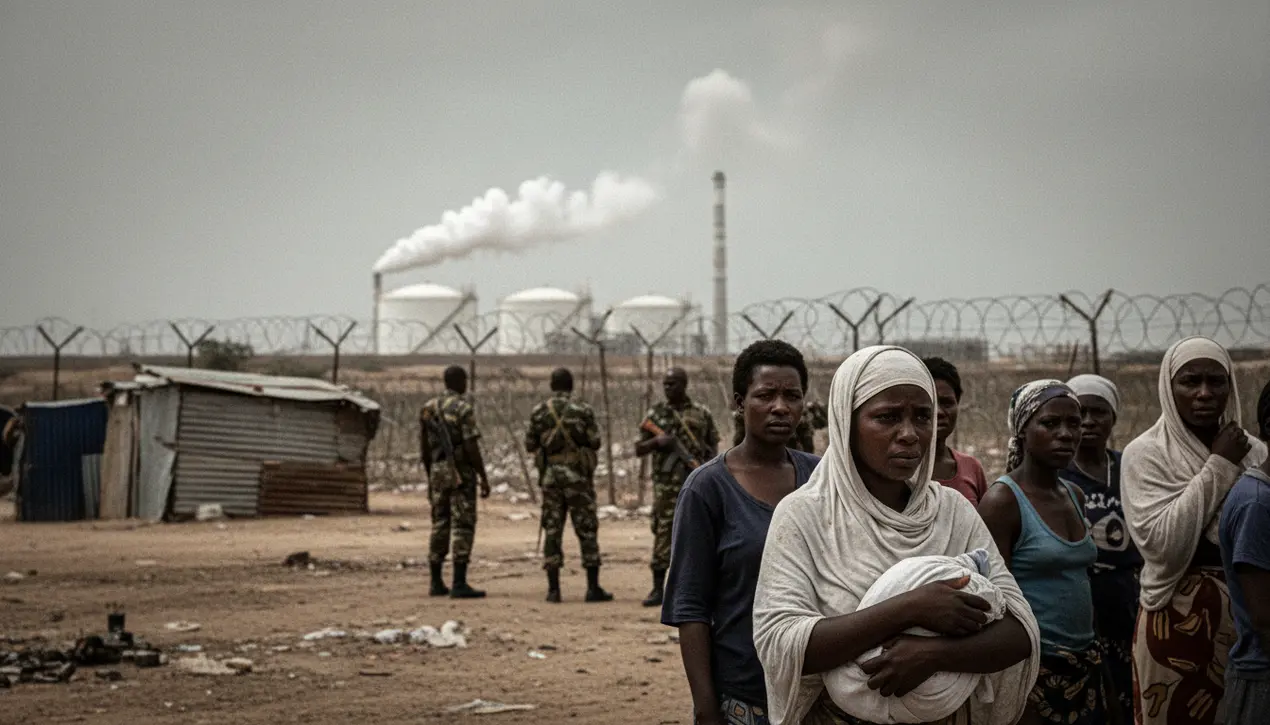- News
- conflict-defense
- French energy giant Total faces war crimes allegations over Mozambique killings.

Politicsconflict & defenseWar Reports and Casualties
French energy giant Total faces war crimes allegations over Mozambique killings.
OL
Oliver Scott
2 hours ago7 min read
The stark allegations of war crimes now leveled against French energy titan TotalEnergies represent a seismic shockwave through the corridors of corporate power and international law, forcing a brutal reassessment of the risks inherent in operating within fragile states. The core of the accusation, stemming from a harrowing complaint filed by French NGOs, is that the company bears 'indirect responsibility' for a series of brutal killings carried out by Mozambican government forces and their private military contractors in the restive Cabo Delgado province, where Total is the principal operator of a massive $20 billion liquefied natural gas project.This is not merely a localized dispute; it is a textbook case of the 'resource curse' metastasizing into a full-blown humanitarian and legal catastrophe. The security apparatus in the region, ostensibly deployed to protect critical energy infrastructure from a burgeoning Islamist insurgency, stands accused of committing dozens of extrajudicial executions and other atrocities against civilians in the vicinity of Total's Afungi site.The company's defense—a flat denial of responsibility for the actions of state security forces—is a legally precarious position that will be tested under the French law of 2017 on the duty of vigilance, which mandates large corporations to prevent human rights abuses throughout their global supply chains and operations. This legal framework, a pioneering piece of legislation, is now being wielded as a sword, and its first major test against an energy supermajor will set a global precedent.The strategic implications are profound. For Mozambique, a nation banking its entire economic future on this LNG bonanza, the scandal threatens to destabilize the already fragile security partnership with foreign investors and international financial backers.For the energy sector at large, it raises an existential question: to what extent can a corporation outsource its security to state actors in a conflict zone and still claim plausible deniability when those actors commit atrocities? The due diligence reports, the contractual obligations regarding the use of force, the internal risk assessments—all will be scrutinized. The potential fallout scenarios are manifold, from crippling financial penalties and project delays that would send shockwaves through European energy markets, to a complete recalibration of how multinationals manage security in high-risk jurisdictions from the Sahel to the South China Sea. This case transcends a single project; it is a direct challenge to the operating model of extractive industries in the 21st century, forcing a reckoning between the relentless pursuit of fossil fuels and the indelible stain of complicity in human suffering.
#featured
#TotalEnergies
#Mozambique
#massacre
#war crimes
#security forces
#corporate responsibility
Stay Informed. Act Smarter.
Get weekly highlights, major headlines, and expert insights — then put your knowledge to work in our live prediction markets.
Comments
Loading comments...
© 2025 Outpoll Service LTD. All rights reserved.